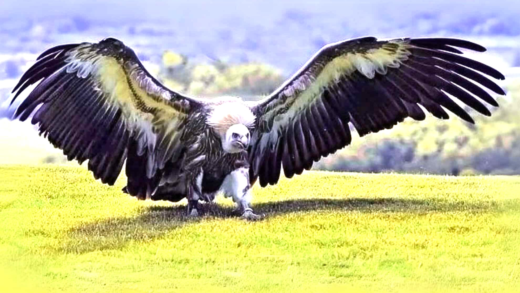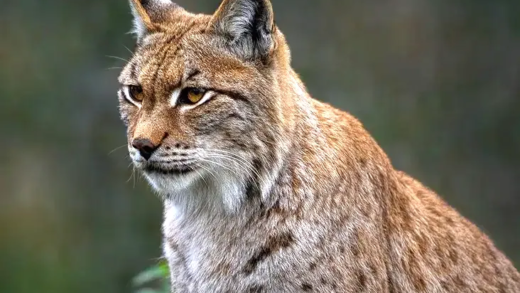Munchkin cats are unique due to their short legs and playful nature. Their history dates back to the 1980s, with challenges in gaining recognition. Compared to other breeds, they are sociable and affectionate. Health concerns include spinal and joint issues. They require specific care, including nutrition and regular vet visits. People often liken them to Wiener dogs due to their appearance and behavior. Adoption can be done through shelters or reputable breeders, and fun facts highlight their interesting traits.
What Makes Munchkin Cats Unique: Exploring Their Short Legs and Playful Nature
Munchkin cats are a distinctive breed known for their unique traits, particularly their short legs. This physical characteristic is a result of a genetic mutation, which gives them a playful and lively demeanor. Their short stature does not hinder their agility; instead, it adds to their quirky personality. Munchkin cats are often described as being friendly, affectionate, and social. They enjoy interacting with humans and other pets, making them ideal companions.
In terms of behavior, Munchkin cats exhibit a range of traits that set them apart from other breeds. They are known for their curious nature and playful antics. These cats love to explore their surroundings and engage in playtime, often showcasing their energetic spirit. Their intelligence also allows them to learn tricks and commands, which can be a fun bonding experience for owners.
Overall, the unique traits of Munchkin cats—including their playful nature and distinctive appearance—make them a captivating choice for cat lovers.
The History of Munchkin Cats: From Discovery to Recognition
The history of Munchkin cats is as intriguing as their unique traits. This breed was discovered in the early 1980s in Louisiana, where local schoolteacher Sandra Hochenedel noticed a group of small cats with short legs. These cats quickly gained attention, leading to the establishment of the breed. In 1983, the first Munchkin cat was officially recognized by the International Cat Association (TICA), which played a crucial role in promoting and developing the breed.
Despite their growing popularity, Munchkin cats faced challenges in gaining recognition. Critics raised concerns about potential health issues related to their short legs, but extensive studies have shown that they can lead normal, healthy lives. Today, Munchkin cats are celebrated for their playful and loving nature, and their recognition has solidified their place in the feline world.
The journey of Munchkin cats from discovery to official recognition highlights their resilience and the passion of their enthusiasts.
Munchkin Cats vs Other Breeds: How Do They Stack Up?
When comparing Munchkin cats to other breeds, several factors come into play. While Munchkin cats are unique due to their short legs, other breeds like Siamese or Persian cats have their own distinct features. For instance, Siamese cats are known for their striking blue eyes and vocal nature, while Persians are celebrated for their long, luxurious fur.
In terms of temperament, Munchkin cats are generally more playful and social compared to many other breeds. They thrive on interaction and tend to get along well with children and other pets. This sociable nature can make them a better fit for families or individuals looking for a companionable pet.
Ultimately, Munchkin cats stand out for their unique combination of physical traits and personality, making them an appealing choice for those seeking a loving and interactive feline friend.
Health Concerns: Are Munchkin Cats Prone to Specific Issues?
Munchkin cats, with their distinctive short legs, can be prone to certain health concerns. While they generally lead healthy lives, potential issues related to their unique anatomy do exist. Some of the common health problems include:
- Spinal Disorders: Due to their genetic mutation, Munchkin cats may face spinal problems like lordosis and kyphosis, which affect their spine’s curvature.
- Joint Issues: Their short legs can lead to joint stress, increasing the risk of arthritis as they age.
- Obesity: Munchkin cats have a tendency to overeat, making them susceptible to obesity, which can exacerbate other health issues.
Regular vet check-ups are essential to monitor their health. Maintaining a balanced diet and encouraging exercise can help mitigate these risks. Understanding these potential health concerns is crucial for Munchkin cat owners to ensure a long, happy life for their feline companions.
Munchkin Cats Behavior: What’s Their Personality Like?
Munchkin cats are known for their playful and affectionate behavior, making them a delightful addition to any home. Their personality traits include:
- Affectionate: Munchkin cats thrive on human interaction. They enjoy cuddling and being around their owners.
- Playful: These cats love to play, often engaging in games that showcase their agility despite their short legs.
- Curious: Munchkin cats are naturally inquisitive. They love exploring their environment and often find themselves in amusing situations.
Their social nature means they usually get along well with children and other pets. This makes them an excellent choice for families looking for a companionable feline. Their lively spirit can bring joy and entertainment to any household.
Care Requirements: What Do Munchkin Cats Need to Thrive?
Caring for Munchkin cats requires understanding their unique needs to ensure they thrive. Key care requirements include:
- Nutrition: A balanced diet tailored for their age and weight is vital. High-quality cat food can help prevent obesity.
- Exercise: Regular playtime is essential to keep them active and mentally stimulated. Interactive toys can help engage their curious nature.
- Regular Vet Visits: Routine check-ups can help catch any health issues early and keep vaccinations up to date.
Providing a safe and stimulating environment will enhance their quality of life. Munchkin cats thrive on companionship, so spending time with them is equally important for their emotional well-being.
The Wiener Dog Comparison: Why Do People Make This Analogy?
Munchkin cats are often compared to Wiener dogs, primarily due to their unique body structure. Both breeds have distinctively short legs, which leads to this amusing analogy. People find it entertaining to liken the two, as both pets exude a quirky charm that captivates many animal lovers.
This comparison extends beyond physical appearance. Munchkin cats and Wiener dogs share similar playful and affectionate personalities. Both breeds are known for their friendly nature, making them great companions. They enjoy being around people and can be quite social, which reinforces the comparison.
Interestingly, the resemblance also highlights the importance of embracing diversity in pet ownership. Just like Wiener dogs, Munchkin cats remind us that uniqueness can be endearing. Their playful antics and lovable personalities make them unforgettable companions, regardless of their short stature.
Where to Adopt or Buy Munchkin Cats: Your Options
When considering bringing a Munchkin cat into your home, you have several options for adoption or purchase. First and foremost, check local animal shelters and rescue organizations. Some shelters may have Munchkin cats available for adoption, offering a loving home for these unique felines.
Another option is to look for reputable breeders. Ensure that you do thorough research to find a breeder who prioritizes the health and well-being of their cats. Ask for references and visit their facilities if possible. Responsible breeders should provide health screenings and allow you to see the living conditions of their cats.
Online platforms can also connect you with Munchkin cats for sale or adoption. Websites dedicated to pet adoption and breed-specific forums often list available cats. Just be cautious and verify the legitimacy of the sources to avoid scams.
Fun Facts About Munchkin Cats: Quirky Tidbits You Didn’t Know
Munchkin cats are full of surprises, and here are some fun facts that showcase their unique qualities:
- Famous Feline: Munchkin cats gained popularity after being featured in the 1990s movie “The Wizard of Oz,” where they were humorously compared to the Munchkins from the film.
- Variety of Colors: Despite their short legs, Munchkin cats come in various colors and patterns, making them visually diverse.
- Long Lifespan: With proper care, Munchkin cats can live up to 15 years or more, comparable to other cat breeds.
- Smart Cookies: Their intelligence allows them to learn tricks and commands easily, making training sessions a fun experience.
- Feline Friends: Munchkin cats usually get along well with other pets, including dogs, thanks to their friendly disposition.
These quirky traits and interesting facts make Munchkin cats a delightful addition to any home, ensuring they capture the hearts of many.





Comments are closed.